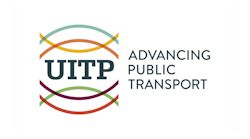European Parliament Environment Committee Adopts Ambitious Targets for the Procurement of Clean Buses
While the mandatory procurement quotas continue to place the highest burden on the public transport sector, UITP welcomes the increased flexibility in the definition of which buses are considered as “clean”.
The committee’s report maintains the high level of ambition proposed by the Commission.
The mandatory procurement targets for the purchase, lease, rent, or hire-purchasing of “clean” buses go up to 50 percent for the first period until 2025, and up to 75 percent until 2030.
For both periods, the committee also decided to include sub-targets for the procurement of zero-emission vehicles.
UITP called for more realistic targets for clean buses in its detailed position paper published in April – also calling for a timeline that would allow its members to switch to new bus systems step by step in a sustainable and cost-efficient way.
However, UITP welcomes the decision to align the definition of “clean vehicle” with the Directive on Alternative Fuels Infrastructure (DAFI). This enlarges the list of clean technologies and will for example allow buses operating on biofuels to be counted towards the procurement quota.
“This week’s agreement places a large burden on public transport, which is already one of the most climate-friendly modes of transport. The alignment with the DAFI Directive increases policy coherence and gives more flexibility to public transport companies and authorities when it comes to finding a sustainable solution that is adapted to their local needs," said Thomas Avanzata, EU department director.



